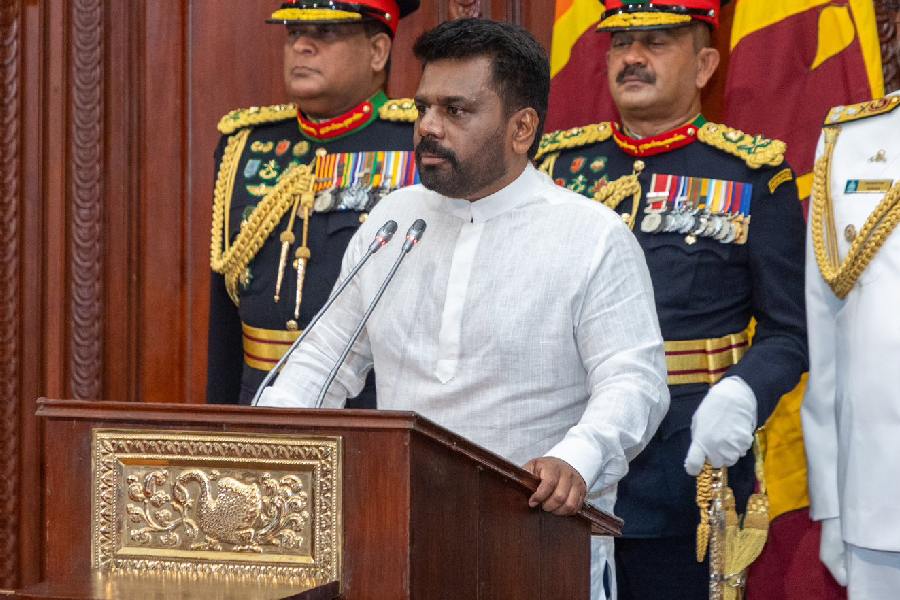External affairs minister S. Jaishankar on Tuesday appeared unfazed by the election of Anura Kumara Dissanayake as Sri Lanka’s President and hoped that bilateral ties would continue to be “positive and constructive”.
Though Jaishankar did not specifically refer to Dissanayake, he was referring to the change of guard in Sri Lanka last weekend.
Dissanayake has long been involved with the Janatha Vimukthi Peramuna (JVP), a Marxist political party that had carried out an insurrection in Sri Lanka against the India-Lanka Accord of 1987 and the 13th Amendment, which seeks to devolve power to Tamils in the country. Though the JVP has mellowed, it remains opposed to the accord.
Jaishankar made this oblique reference to the government change in Sri Lanka in response to a question at the New York-based Asia Society. He was asked whether the new regime in Colombo could be adverse to India despite New Delhi bailing out the country during an economic crisis two years ago.
“I think what happens politically in Sri Lanka, that’s for their politics to work out. At the end of the day, each one of our neighbours would have their own particular dynamics. It’s not our intention to suggest that their dynamics must necessarily adhere to what we mightconsider as being better for us… Everybody makes their choices and then countriesadjust to each other and find ways of working it out,” Jaishankar said.
In the context of both Sri Lanka and Bangladesh, Jaishankar said India was not seeking to control every political move of every neighbour.
“Every country will have its own dynamics and in foreign policy, you try to read it, you try to anticipate it, you also respond to it. I’m very confident that at the end of it all, in our neighbourhood, the realities of inter-dependence, of mutual benefit, of the fact that our ability to get along will serve both our interests. Those realities will assert themselves. That’s been the history. Every few years something happens in our region and people suggest that there is some kind of irretrievable situation out there. You then see the correctives beginning to manifest themselves…. I’m quite confident that in both these cases, I would expect that our relationship would continue to be positive and constructive.”
India had anticipated the possibility of Dissanayake winning the presidential election and invited him to New Delhi in February this year. He came with a five-member delegation of the coalition he leads for a three-city visit.
This was the first time India had invited Dissanayake though other parties of Sri Lanka have been regular visitors. During his visit, Dissanayake had met both Jaishankar and national security adviser Ajit Doval.
On India’s decision tohelp Sri Lanka during the economic crisis, Jaishankar said: “We did it in a timely manner, we did it on scale, we put out $4.5 billion effectively… itstabilised the Sri Lankan economy. The rest of it wasup to them. At the time we did it, it is not that we had a political conditionality which accompanied that. We were doing it as a good neighbour who did not want to see that kind of economic meltdown at our doorstep.’’











